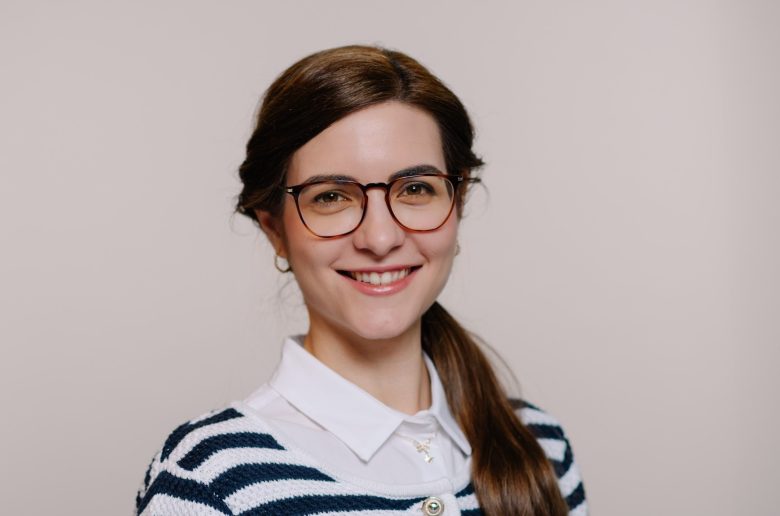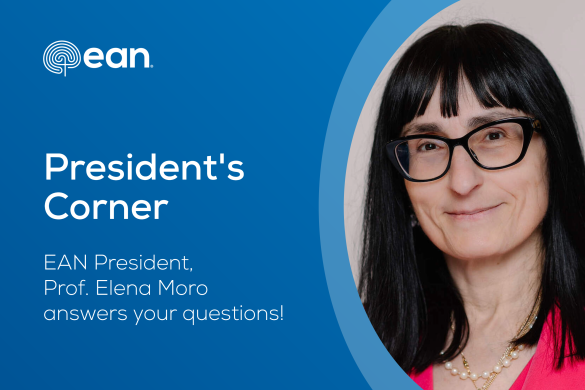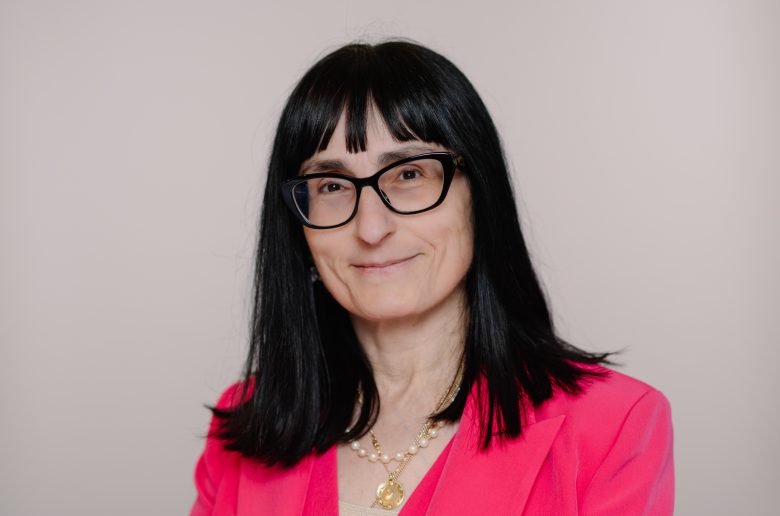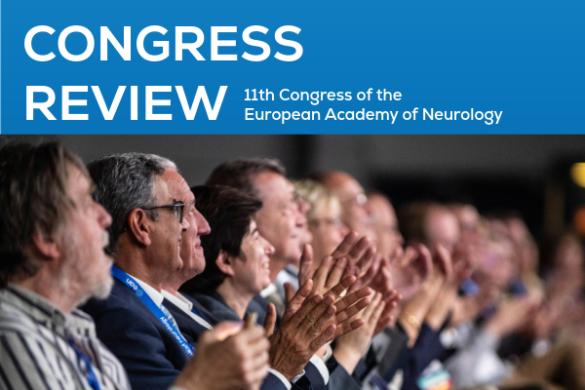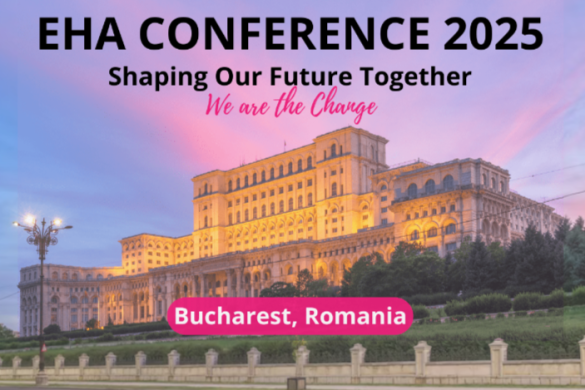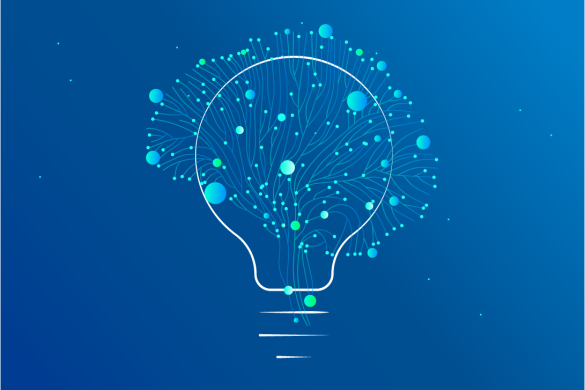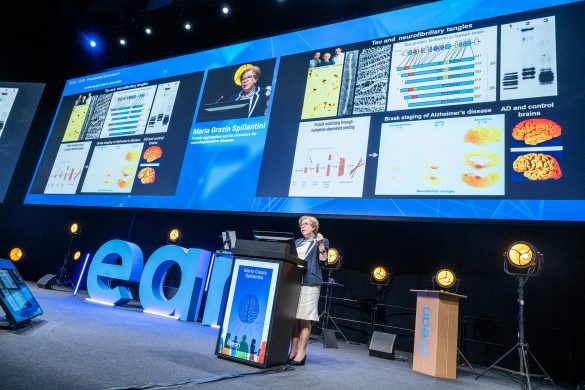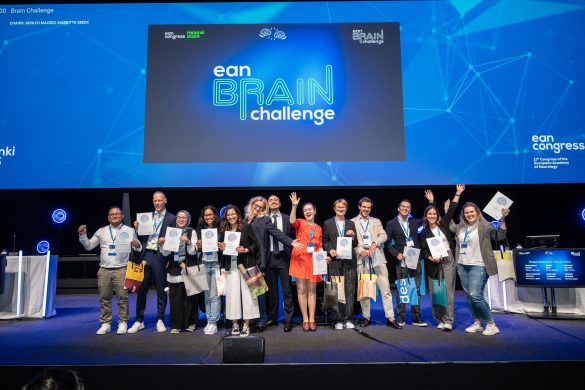Gian Luigi Lenzi (GLL): The EAN website is to become the primary source of information on European neurology. Can you briefly describe/illustrate your plans to achieve this?
Tim von Oertzen (TvO): The website is an essential tool for EAN to communicate and interact with its members and with the public. To fulfill this role its users should easily find the information they are looking for within an intuitive design. We will provide information on the EAN, its programmes and initiatives as well as on neurology in Europe.
Get a glimpse of the key highlights, insights, and standout moments from EAN 2025 in Helsinki, all captured in our Congress Review eBook.
Latest Posts
-
-
Interviews
Interview with Sohini Chowdhury from the Michael J. Fox Foundation for Parkinson’s Research
March 1, 2015Gian Luigi Lenzi (GLL): The EAN – European Academy of Neurology is the platform by excellence for all European neurologists. Can you briefly outline the mission of The Michael J. Fox Foundation to the neurologists and Neuropenews readers? -
As in the previous year, Neuropenews asked EAN committee members, panel chairs, speakers, … which session one should not miss at the upcoming congress in Berlin, June 2015. Please find their answers below …
-
Movement disorders are very common worldwide, knowing no race or ethnic background. Movement disorders are common cause of disability especially in alder people. The 11th module of ebrain, edited by Naheed Khan covers the full spectrum of movement disorders. There… Continue Reading
-
Belief in progress is dauntless. Media keeps informing about inventions which, very soon for certain, will lead to victory over cancer or Alzheimer's disease. The literary set, some conservative politicians or church officials sometimes doubt the progress, their scepticism is often motivated ideologically and hardly resonates among doctors or scientists.
-
by Didier Leys The “Société Française de Neurologie” (SFN) held its winter meeting in La Salpêtrière, Paris, on January 15th and 16th, 2015. For the first time the board of the SFN decided to invite another National Society of… Continue Reading
-
It took decades until neurology in Germany recovered from the brain drain caused by the Nazi regime during the 1930ies and 1940ies (see previous chapters III and IV of this series). Initially the German Neurological Society (Deutsche Gesellschaft für Neurologie, DGN) recovered only slowly until late in the last century when this development speeded up, coinciding with the re-unification of Germany.
-
The first paper that I would like to point out to Neuropenews readers concerns a neurological syndrome that often I have personally disregarded, or linked to similar “foggy” presentations such as the Chronic Fatigue Syndrome. Serra J, Collado A, Solà R et al, have published in ANNALS OF NEUROLOGY, 12 february 2014, Vol 75, Issue 2, pages 196-208, a paper “Hyperexcitable C nociceptors in fibromyalgia” that initially escaped my attention (it was published one year ago) and that indicates how in fibromyalgia there is more than many neurologists (at least myself) previously thought.
-
by Delia Lenzi A very interesting study by Boekel and colleagues tries to replicate previous studies linking brain structure to behavior. No surprise that they didn’t get much out of it. The reasons are well known: from optional stopping (i.e.,… Continue Reading
-
Report from the Education Committee, February 2015
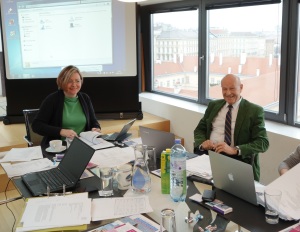
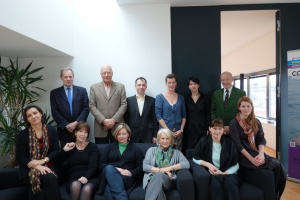 by Hannah Cock
Education underpins much of the EAN vision, in which context an early priority for the Education Committee has been to work on how best to optimise the quality of… Continue Reading
by Hannah Cock
Education underpins much of the EAN vision, in which context an early priority for the Education Committee has been to work on how best to optimise the quality of… Continue Reading -
I had the opportunity to be one of the young neurologists chosen by the EFNS Education Committee to receive an educational fellowship. This was a 6 month fellowship in Neuro-infectious diseases that took place in the Department of Neurology and the HIV Unit of the Royal London Hospital in London, under the supervision of Prof Gavin Giovanonni and Dr Mónica Marta. Here I had the chance to follow experienced neurologists in their activities in the ward, outpatient clinic, meetings and research projects.
-
I would like to report on the 6 months that I spent at the centre of dizziness and balance disorders in the Neurology Department (Head: Professor Dr. Thomas Münte) at the University Hospital of Schleswig Holstein in Lübeck, Germany, as a fellow in the Educational Fellowship Programme of the European Federation of Neurological Societies (EFNS). Professor Christoph Helmchen, the head of the centre of dizziness and balance disorders in Lübeck, was my tutor during this period and I had the chance to join his research group.
-
All e-learning activities are free-of-charge for EAN members registered to www.eaneurology.org! Answer all questions correctly and you will receive one hour of CME. European Journal of Neurology
Every month one article is chosen for online learning. The following articles are… Continue Reading -
EAN NewsEur J Neurol
European Journal of Neurology – read these free invited review articles
March 1, 2015To celebrate the European Journal of Neurology’s first full volume as the official journal of the European Academy of Neurology it is publishing a series of invited review articles from European subspecialty experts covering topics of current interest. The first… Continue Reading -
The XXII World Congress of Neurology (WCN) will be held in Santiago, Chile from October 31 to November 5, 2015. The theme of the congress is “Changing Neurology Worldwide”. The World Federation of Neurology jointly with the Chilean Society of… Continue Reading

